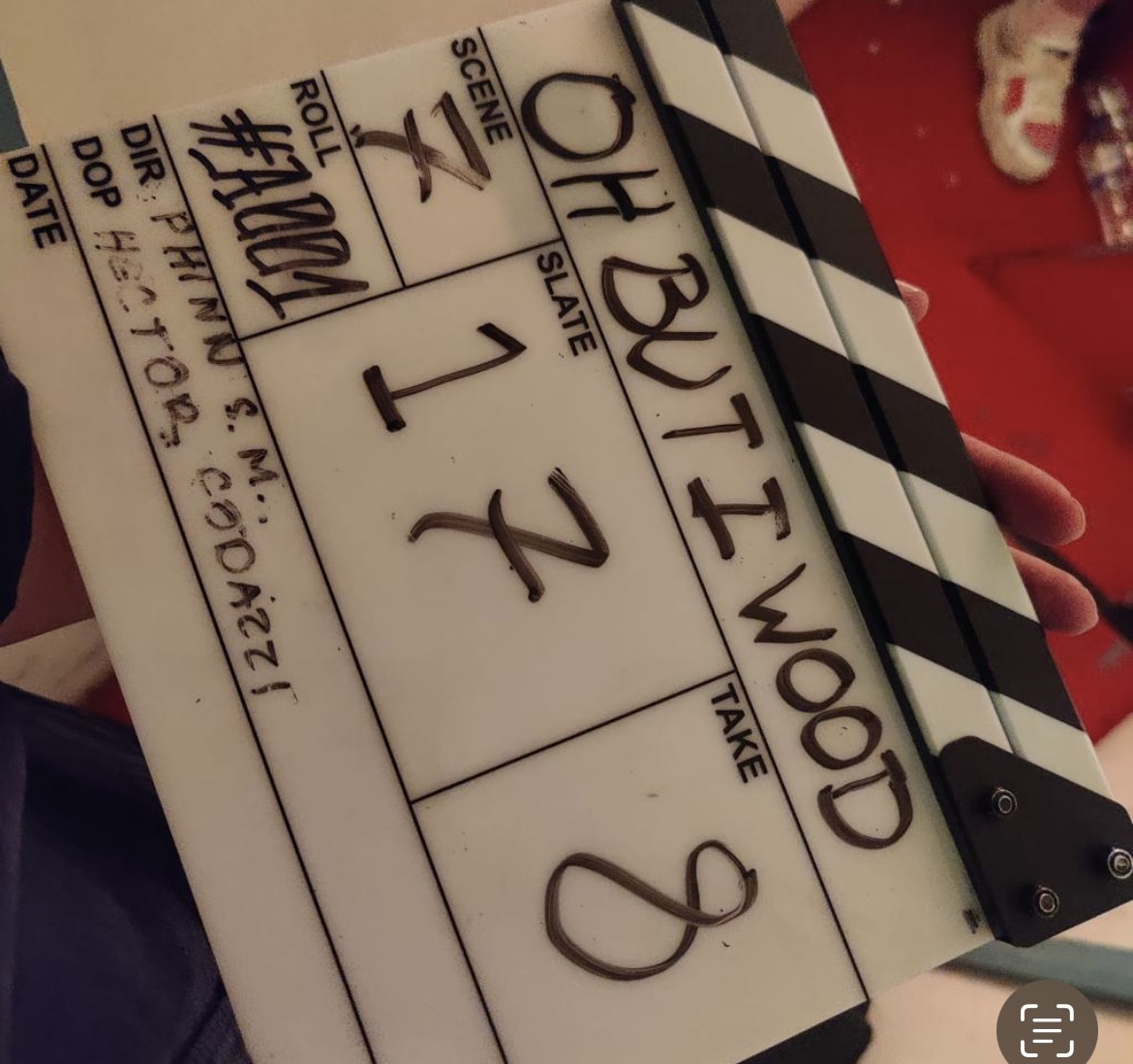In this short interview, Director Phinn Sallin-Mason (they/them) takes us through the importance of teaching young women what consent looks like, in the context of queer relationships, and why Sallin-Mason chose to centre their up-and-coming film around this narrative.
A man can rape a woman. A man can sodomise another man. What can a woman do?
Schools are legally required to cover conversations surrounding consent, including what counts as assault. The likelihood is that your child will have been told two truisms:
Penetration without consent is Rape.
Consent is permission to do something.
Whilst both of these lessons are fundamental, they are very male-centric. Penetration is often the act carried out by the man, therefore without permission from his partner, he commits rape. So what happens when two women are about to have sex and one of them does not want to, but they carry on anyway?
This is what prompted Director Phinn Sallin-Mason, to write and produce Oh, but I would: The short-film about queer consent.

“The story came to light when we were discussing how, in the Queer community, we were too often witnessing toxic behaviours that were not being called out or seen as problematic.”
The short film follows the story of Emma (Melinee Dufour she/her), a young aspiring musician who moves into a London Warehouse. After an evening at a house party with new flatmate, Gabby (Robyn Hughes she/her), substances and circumstances blur the lines around what happens between the couple.
“It became clear to us this project was something that we had to do. There is not a lot of representation, and it’s really hard for people to recognise that there is any kind of violence like this because of this, particularly in the case of Women on Women assault.”

According to a study conducted by The World Health Orginisation in March 2021, 1 in 3 people identifying as women will experience some form of sexual violence – those between the ages of 15-24 being at the highest risk. The most common cause of violence against women were as a result of crimes that were committed by men. Only 4% of the women who took part in the survey said that the assault was not caused by a man.
“I think women are not portrayed as violent beings; people that are not Cis-Men tend not to be allowed to portray themselves as violent. In a way it is almost empowering as it’s freeing to see that women can be violent – but in this case we thought about it from a different angle.”
SALLIN MASON
“In this case it applies to the perpetrator. Most people just wouldn’t imagine that there could be situations of sexual assault or even just boundaries being crossed.”

Actress Melinee Defour, who co-wrote the story felt that the representation was also lacking:
“We have tried to be subtle and nuanced which means that there is a difficulty realising (the characters) interactions could be problematic,” she says.
“It’s not only something that is not represented in the media enough or spoken about, but it is also something as part of the queer community me and Phinn have witnessed. When we told people about what we were doing, many people who were reading the script were coming to their own realisations, that some of their own experiences may not have been consensual.”
Our point of the film is to raise questions: What kind of power positions were people in? What kind of violences were committed? What subtle things occured that made the situation turn into what we see on the screen?”
It is important when the conversation of consent comes up in the home, that queer women are involved. Whilst they can be assaulted by a man, they can also be assaulted by a woman. Both are valid and both follow the same principles: No means No. A useful resource to look to is Stonewalls Lesbian Hub, which has a very useful section surrounding consent.
Whether you feel comfortable enough talking to your child about it, or you would prefer them to read the content alone, understanding what consent looks like in the queer world is the first step towards advocacy for other queer people, as well as themselves.

Sallin-Mason explained that particularly for fathers, this may be a difficult topic:
“We understand that especially by a lot of Cis-men this might not be recognised as rape. Rape is still legally described as a penetrative act so it does not exist past assault. We know it won’t necessarily touch everybody – which is something we talked a lot about – it just won’t be very clear for a certain part of the audience. However, for some, it will be and that’s the most important part of the movie.”
Ultimately the mission of the movie is to spread awareness about less discussed areas of consent.
“The way we are telling the story holds power because we are choosing how to tell the story and we do try to explore the type of psychological effects events like this can have. Even those that might not even recognize this encounter as assault – they will have to recognise it does have effects – despite it not abiding to their terminology.”
Oh but I Would is currently in post-production and Sallin-Mason believes that it will be a very poignant watch for queer people.
“We do not just want to speak to the LGBTQIA+ community – we also hope to speak to straight women. The ‘Me Too’ movement opened up conversations for what harmful interactions looked like – now the next step is branching out to all forms of consent within all forms of sexual expression.”

